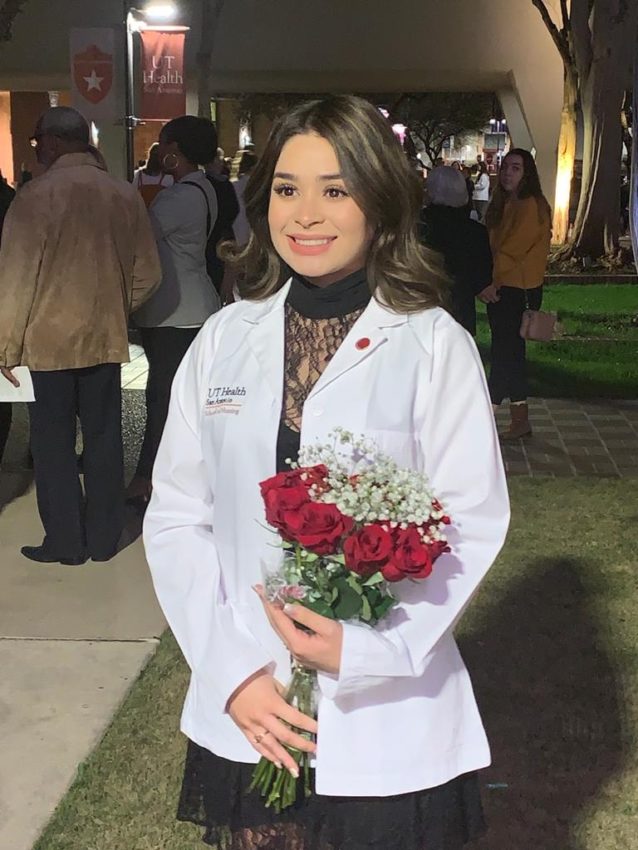As a member of the diagnostic COVID-19 laboratory at UT Health Rio Grande Valley’s Reverse transcription-polymerase chain reaction (RT-PCR) testing lab, UT Health San Antonio nursing student Melissa Ku witnessed the pandemic’s surge first hand.
As the pandemic spread, Ku, who is in the final semester of nursing school, wanted to join the fight in any way she could. After moving back to her hometown of Edinburg, Texas, she was presented with the opportunity to help by extracting RNA samples in a laboratory where COVID-19 tests were being processed.
As the pandemic surged in the Rio Grande Valley, the lab began testing up to 3,000 samples a day. “You hear that supplies are running out in the hospitals, but that happens in the labs as well,” Ku said. “We’re constantly having to switch out gloves and masks every day we come in.”
Not only was the shortage of personal protective equipment becoming a challenge, but long hours, overnight shifts and a chaotic race to deliver results to patients in a timely manner became the new normal. “We sometimes would get drop-offs at twelve at night, with some people having to stay until six the next morning. We were trying to get everyone’s results back to them as soon as possible to prevent complications.”
While working hard to meet these demands, Ku, who was also finishing clinicals online, started feeling the same symptoms she was made aware of working in the laboratory.
“It started with migraine-like headaches. I couldn’t look side to side. I also had a fever, started to feel body aches, shortness of breath and lost my sense of smell and taste,” Ku said.
Although she is unsure of how she contracted the illness, as a frontline worker fighting the virus, Ku knew her symptoms were signs of COVID-19.
“I know my body well,” she said. “I thought ‘this is not normal. I’m not feeling well, let me call the lab to get tested.’”
After her test returned positive for COVID-19, Ku self-quarantined for nearly two weeks. Because Ku was home with her family, she chose to isolate herself in a separate part of the house. “I was super vigilant, because of my parents,” she said.
Though she was able to recover from the virus without being hospitalized, she knows the importance of doing her part to help stop the overcrowding of hospitals. “There are obviously some populations that are more at risk to develop complications, which is why we have to do our part to stop the spread to limit our hospitals reaching full capacity. This way they can have the opportunity to help the people who are at risk, rather than other people like myself who are fortunate enough to make it through the virus,” Ku said.
While her experience with COVID-19 may have sidelined her from the fight for a time, she was eager to rejoin the efforts in the lab and continue her final days of nursing school.
“You have to have a caring heart to be in any medical profession. I genuinely care about people’s well being, and them coming back to their family. This is what motivates me every day. It’s knowing that if I’m in the lab testing and doing my job well, we can actually make a difference when it comes to stopping the spread of the virus,” she said.
Ku has since finished her contract with the laboratory and is hoping to leverage the experience after graduation and begin working in an ER.
Ku stressed that no one is immune to COVID-19, and she’s made a commitment to continue being a driving force to help stop the spread and make lives better.


